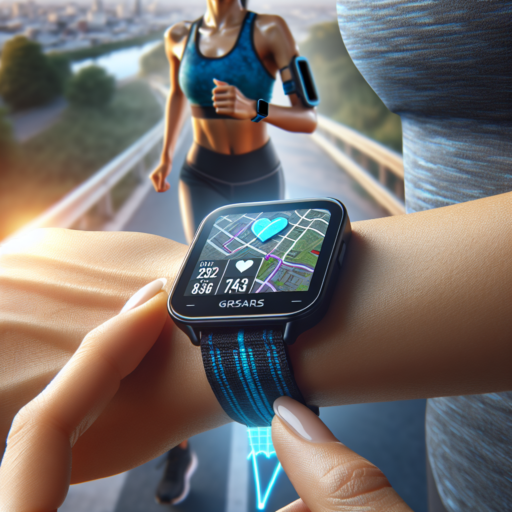Why is my body battery so low on my Garmin watch?
Experiencing a low body battery reading on your Garmin watch can often lead to questions and concerns about your physical well-being or the accuracy of your device. The body battery feature on Garmin watches is devised to help users monitor their overall energy levels, combining data on stress, heart rate variability (HRV), sleep, and physical activity. A low reading may not just indicate temporary fatigue but can have various underlying factors worth considering.
High Stress Levels
One significant cause of a low body battery reading may be elevated stress levels. The Garmin watch utilizes HRV data to gauge your stress levels throughout the day. High stress can lead to decreased HRV, indicating to your device that your body is working harder to maintain its normal function. This, in turn, affects your body battery score, as the device interprets high stress as a high energy expenditure.
Poor Sleep Quality
Another critical factor influencing your body battery is the quality of your sleep. Garmin devices track not just the duration but the quality of your sleep—including sleep stages like light, deep, and REM sleep. Poor quality sleep, frequent awakenings, or a lack of deep sleep phases can lead to a lower recharge rate during the night, impacting your body battery’s ability to recover and leading to consistently low readings.
Understanding the multifaceted factors that contribute to your Garmin watch’s body battery readings is crucial. While it might be tempting to attribute a low body battery solely to physical exhaustion, it’s important to consider the roles of stress and sleep quality in your overall energy levels. Monitoring these readings over time can offer invaluable insights into your health and well-being, guiding you towards lifestyle adjustments for improved energy and vitality.
Why is my body battery always depleted?
Feeling constantly drained can often leave us wondering, why is my body battery always depleted? This prevalent issue could stem from a variety of factors, each contributing to that sense of perpetual fatigue. Understanding the underlying causes is crucial for addressing this energy deficiency effectively.
Common Lifestyle Factors
Lifestyle choices play a significant role in determining our overall energy levels. Inadequate sleep, poor dietary habits, and minimal physical activity are primary contributors to a depleted body battery. Additionally, excessive stress and failing to allocate time for relaxation can further exacerbate feelings of exhaustion. Making conscious adjustments in these areas can significantly impact your energy reserves.
Underlying Health Conditions
Besides lifestyle factors, certain health conditions can also be at the core of constant fatigue. Issues such as anemia, thyroid disorders, and diabetes are known to affect energy levels profoundly. It’s essential to consult with a healthcare provider for a proper diagnosis and treatment plan if you suspect that an underlying medical condition might be draining your body battery.
How do I improve my Garmin body battery?
Improving your Garmin Body Battery requires a holistic approach to wellness, encompassing sleep, physical activity, and stress management. Here’s how you can optimize your Garmin device’s body battery readings to get a comprehensive overview of your energy levels.
Optimize Your Sleep Quality
Improving sleep quality is paramount when trying to enhance your Body Battery score. Ensure you establish a regular bedtime routine, avoiding caffeine and electronic devices before sleep. Your Garmin device uses heart rate variability (HRV), stress, and activity data to assess how restorative your sleep is, which in turn affects your Body Battery.
Increase Daily Physical Activity
Regular exercise is crucial, but it’s important to balance activity with rest. Start with moderate exercises and gradually increase intensity, allowing your body to adapt and recover. Your Garmin tracks your daily activities and estimates how they deplete or recharge your Body Battery. Remember, it’s not just about the quantity but the quality of physical exertion and ensuring adequate recovery periods between workouts.
Manage Stress Effectively
Stress management plays a key role in improving your Body Battery. Utilize the stress tracking features on your Garmin to identify high-stress periods during your day. Techniques such as deep breathing, meditation, and mindfulness can help mitigate stress levels, thereby positively affecting your Body Battery score. Regular practice can considerably reduce stress-induced energy depletion, contributing to overall energy restoration.
By focusing on these key areas, you can gradually improve your Garmin Body Battery, better understanding your body’s energy levels, and optimizing your overall health and well-being. Daily monitoring and adjustments, based on your Garmin’s feedback, will make a tangible difference in your energy management strategy.
No se han encontrado productos.
Is the Garmin body battery accurate?
When discussing the accuracy of the Garmin body battery, it’s crucial to understand the technology behind it. This feature tracks various physiological indicators such as heart rate variability (HRV), stress, and sleep to estimate energy levels throughout the day. Users often wonder how closely these measurements mirror their actual state of fatigue or readiness.
Factors Influencing Accuracy
Several factors can affect the precision of the Garmin body battery. First, individual variability in physiology means that the algorithms, while sophisticated, might not capture every nuance of a person’s energy levels. Additionally, external factors like the fit of the device on the wrist and participation in certain activities can influence the data collected, potentially leading to discrepancies in the body battery reading.
Moreover, the body battery’s accuracy can significantly benefit from continuous use. As the device collects more data over time, it adapts to recognize patterns specific to the user, potentially offering more accurate estimations of energy reserves. This learning curve is an essential aspect of understanding the capability and reliability of the Garmin body battery feature.




